Search Results
Search
Filter results
Advanced Filters
Your search returned 883 Solutions
-
Free online platform supporting families of children with intellectual disabilities
The Nayi Disha Resource Centre offers a free online platform for families with children with developmental disabilities. Building on this, the NGO has developed a program to support caregivers with limited digital literacy by using resources such as WhatsApp as well as workshops, support groups or family events.
Nayi Disha Resource Centre, Online platform for empowering parents of children with intellectual disabilities, India -
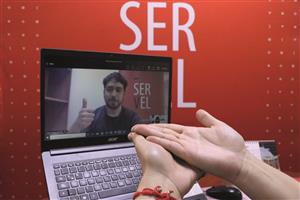
Sign language video support for the electoral participation of people with hearing disabilities
In 2021 the National Electoral Service SERVEL, which is responsible for conducting elections and voting in Chile, introduced a permanent video interpretation service in Chilean sign language on its website to support voter participation by people with hearing disabilities. In the same year 340 people used this service.
SERVEL - Electoral Service of Chile, The Sign Language Video Interpretation Service of SERVEL, Chile -
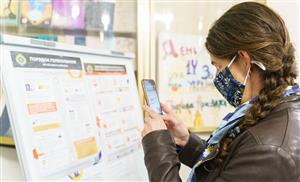
QR Codes used to inform voters who are blind or deaf about voting procedures
In the run-up to the 2020 local elections in Ukraine, the International Foundation for Electoral Systems (IFES) joined forces with the Central Election Commission of Ukraine to develop information posters with QR codes. These were linked to audio and sign language formats and were used by approximately 6,000 people.
International Foundation for Electoral Systems, Accessible Voter Education in Ukraine, Ukraine -
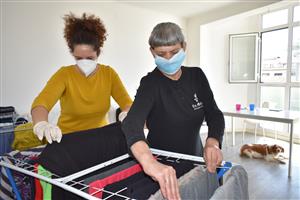
People-centred housing services for persons with psychosocial disabilities
Founded by Support-Girona from Spain in 2018, the Housing Commission supports people with psychosocial disabilities to access housing. A person-centred methodology ensures that they can decide for themselves where and how they want to live. By 2022 more than 50 people have found housing in this way.
Support Girona, Top House Housing Commission, Spain -
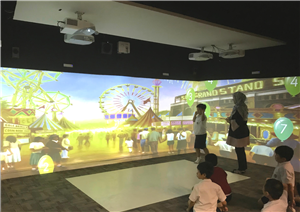
Children with disabilities learning with interactive wall and floor projections
Digital Dream is a Singapore-based social enterprise that began offering creative digital solutions for the education of children with disabilities in 2018. The iCUBE uses projections on walls and floors to create immersive and interactive environments that allow children to learn real-world situations safely.
Digital Dream, Digital Dream, Singapore -
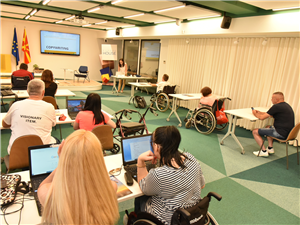
Jobs in digital marketing and social media for people with physical disabilities
In 2021, Brand Solution from North Macedonia launched ‘Best Online Assistant’, an IT platform that offers courses in digital marketing and social media and places job seekers with disabilities in this field. By 2022, 40 people had attended courses, 10 companies were partners, and Brand Solution had expanded to Bulgaria.
Brand Solution LLC, Best Online Assistant, North Macedonia -
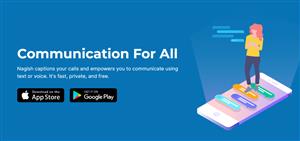
An AI-based smartphone app translating conversations into text messages in real time
Nagish, New York: Developed an AI-driven app for deaf or hard-of-hearing users, converting audio to text and vice versa. Free, with corporate partnerships. Over 20,000 users in the U.S., Canada, and Israel in 2023.
Nagish App, United States of America -
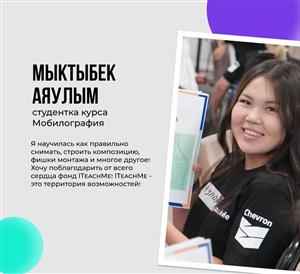
Using gamification and mass events to train young people with disabilities in IT skills
ITeachMe Competence Development Centre, Kazakhstan: Aims to empower socially vulnerable persons with disabilities. From 2019-2023, established partnerships with 100+ enterprises, with over 90% of graduates gaining employment.
ITeachMe, Kazakhstan -
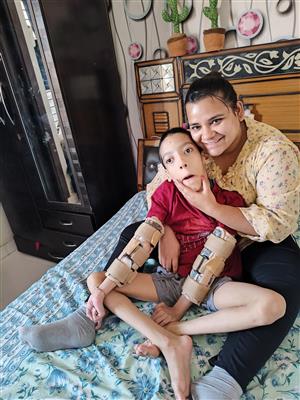
Indian start-up company offering paid early childhood intervention as in-house services
LoveForLife Rehabilitation Services (LFL Care), India: Offers personalized parent-child counselling and early intervention services. In 2022–2023, served over 500 children, mostly aged 0 to 6 years, with various therapies and educational support.
LFL Care, India -
A school educating a majority of deaf students with a minority of hearing students
Fundación ICAL, Colombia: Runs a specialized school using the Inverse Inclusion model. Majority of students with disabilities learn alongside a minority of hearing students. By 2023, more than 170 students aged 3 to 25 years were enrolled.
Inverse Inclusion, Colombia
- Page 1
- Page 2
- Page 3
- Page 4
- Page 5
- Page 6
- Page 7
- Page 8
- Page 9
- Page 10
- Page 11
- Page 12
- Page 13
- Page 14
- Page 15
- Page 16
- Page 17
- Page 18
- Page 19
- Page 20
- Page 21
- Page 22
- Page 23
- Page 24
- Page 25
- Page 26
- Page 27
- Page 28
- Page 29
- Page 30
- Page 31
- Page 32
- Page 33
- Page 34
- Page 35
- Page 36
- Page 37
- Page 38
- Page 39
- Page 40
- Page 41
- Page 42
- Page 43
- Page 44
- Page 45
- Page 46
- Page 47
- Page 48
- Page 49
- Page 50
- Page 51
- Page 52
- Page 53
- Page 54
- Page 55
- Page 56
- Page 57
- Page 58
- Page 59
- Page 60
- Page 61
- Page 62
- Page 63
- Page 64
- Page 65
- Page 66
- Page 67
- Page 68
- Page 69
- Page 70
- Page 71
- Page 72
- Page 73
- Page 74
- Page 75
- Page 76
- Page 77
- Page 78
- Page 79
- Page 80
- Page 81
- Page 82
- Page 83
- Page 84
- Page 85
- Page 86
- Page 87
- Page 88
- Page 89